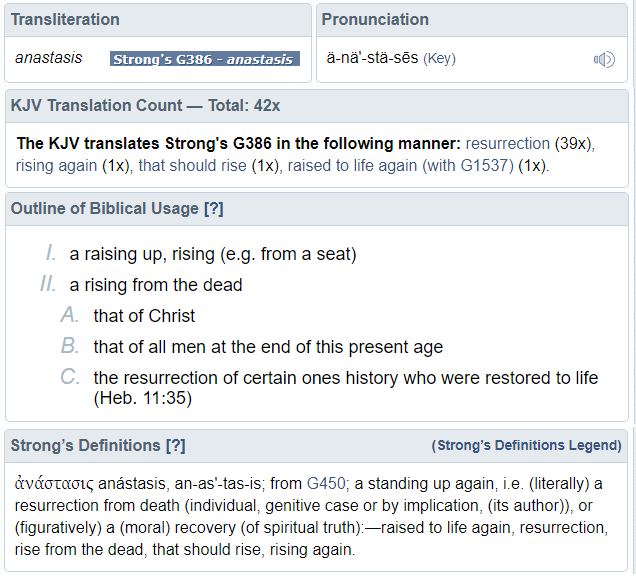I thought I had encountered the logical limit of extreme literal interpretation with the YEC insistence on a 6000 yeqr old Earth. But perhaps this is in a tie for the Top Two literal interpretations:
Take these two paragraphs for a sample of the logic:
"… this is also evident from the very meaning of the term “resurrection of the dead” (1 Corinthians 15:13, etc.). The phrase means: that which is dead (namely, our body) is made alive. If the same body that died is not the body that was raised, Paul could not call it the “resurrection of the dead.” It would not be a resurrection at all.
Third, the phrase “the dead will be raised” (1 Cor. 15:52) also communicates this. John Piper comments on this verse that, “If God meant to start all over with no continuity between the body I have now and the one I will have, why would Paul say ‘the dead will be raised’? Why would he not say, ‘the dead will not be raised (since they are decomposed and their molecules are scattered into plants and animals for a thousand miles) and so God will start from scratch’? He did not say that, because it is not true” (Future Grace, 372)."
For example, the writer says verse 13 (among others) uses the term that means "the body made alive’. That is an incredible distortion!
The term used, Anastaasis, does not “mean” that. It is the Greek word for “rising” or “standing up” (as from sitting) - - which has been amplified religiously to mean additional things.
Verse 52 uses a different word: “Egeiro” (Strong’s Greek #1453) is similarly employed.
KJV Translation Count — Total: 141 times.
The KJV translates Strong’s G1453 in the following manner:
rise (36x),
raise (28x),
arise (27x),
raise up (23x),
rise up (8x),
rise again (5x),
raise again (4x),
miscellaneous (10x).
to arouse, cause to rise
to arouse from sleep, to awake
to arouse from the sleep of death, to recall the dead to life
to cause to rise from a seat or bed etc.
to raise up, produce, cause to appear
to cause to appear, bring before the public
to raise up, stir up, against one
to raise up i.e. cause to be born
of buildings, to raise up, construct, erect
So the word has an extreme range of meanings, from “erecting a building” (which I think makes for a good analogy), to “to cause to appear”, to “cause to be born”.
The writer is actually trying to make a biblical case that God would never think of rebuilding bodies!
“. . . why would Paul say ‘the dead will be raised’? Why would he not say, ‘the dead will not be raised (since they are decomposed and their molecules are scattered into plants and animals for a thousand miles) and so God will start from scratch’? He did not say that, because it is not true.”
The writer does not attempt to reconcile his interpretation with cases where there is literally no more body… either through cremation or just the process of decay that inevitably happens over the course of decades and centuries. If there is no more body, obviously God does have to “start from scratch”.
This is a good example of “concrete thinking” at its worst - - as in “a head made of concrete”.

